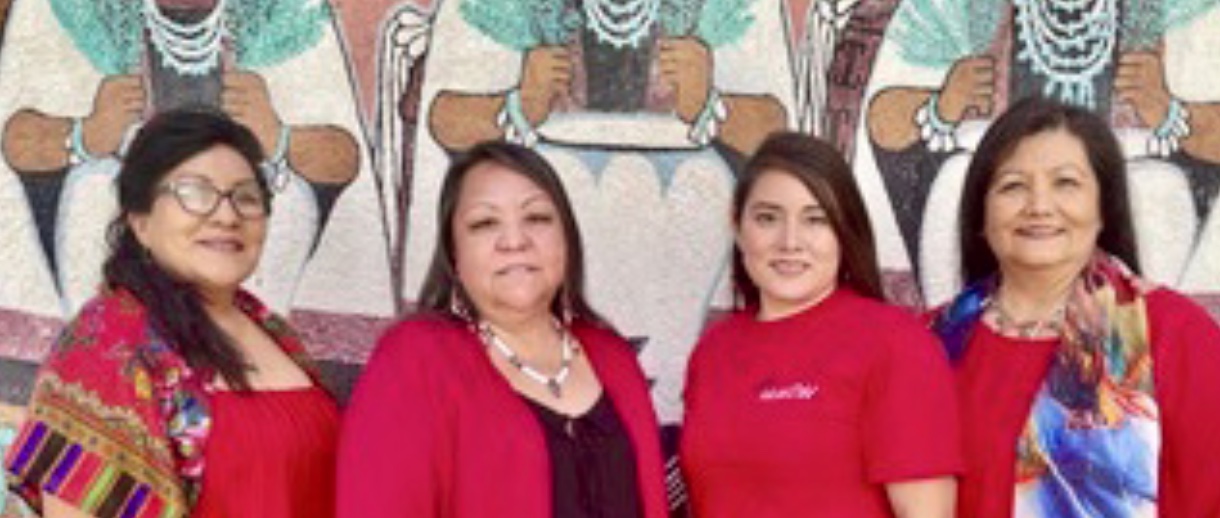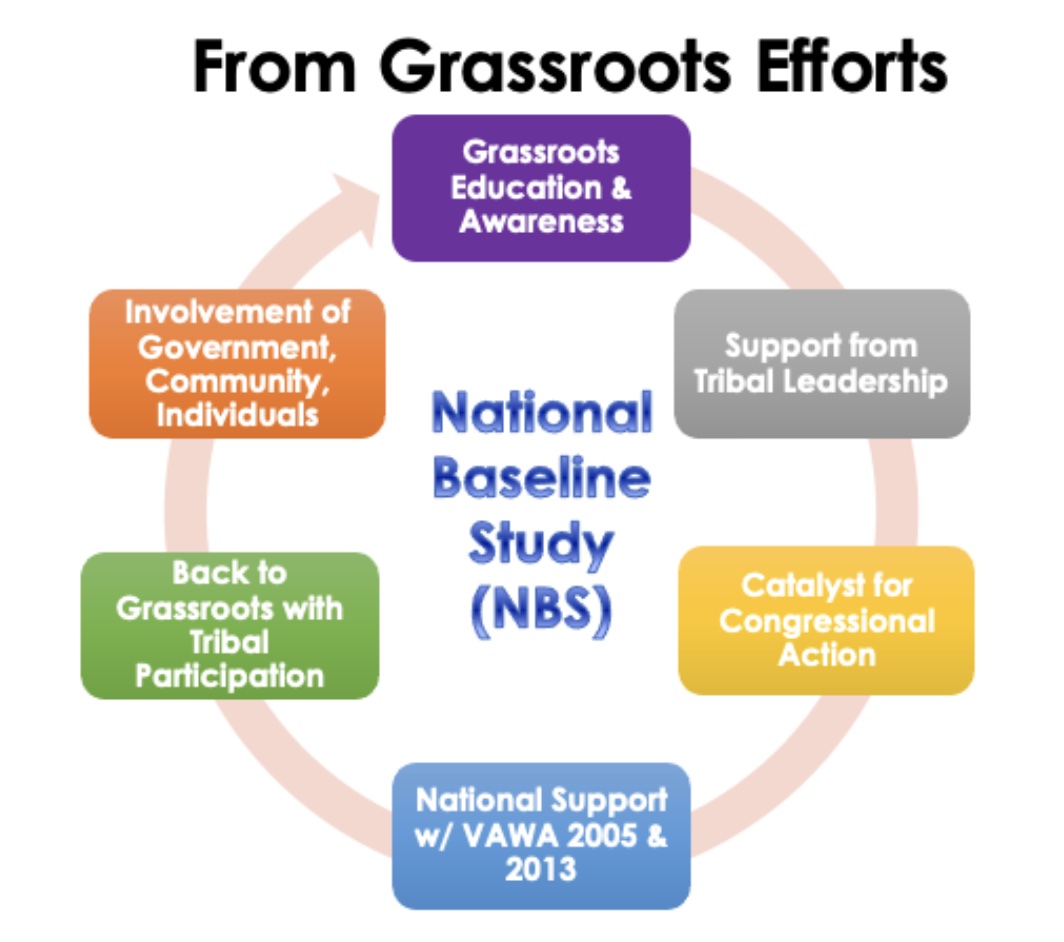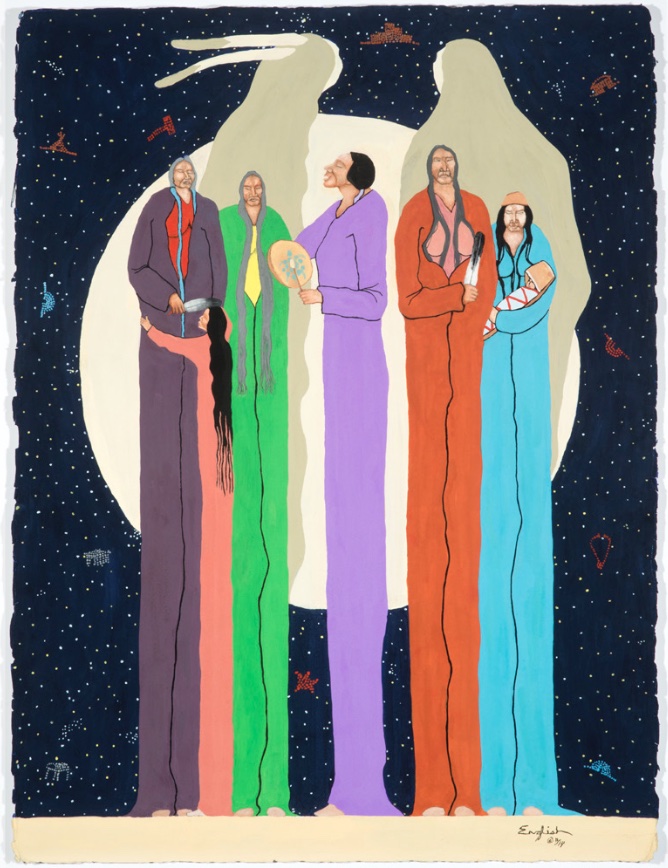The National Baseline Study: NBS Tribal Engagement Strategies

American Indian (AI) and Alaska Native (AN) tribes have a rich understanding of studying the world around them and applying global, national, and regional knowledge to local tribal concerns. Tribes are regularly involved in self-initiated studies or participate with other entities. Study types include research, evaluation, assessments, testing, observations, and more.
Tribes frequently participate in national and regional studies. Due to past research abuses, many tribes now regulate studies through laws and policies. Many have research permits, research review boards (RRB), and institutional review boards (IRB) to approve studies in their communities. Most tribes, even those without written review processes, now require formal approvals defined by each tribe.
The Violence Against Women and Department of Justice Reauthorization Act of 2005 (VAWA 2005) authorized a National Baseline Study (NBS) involving AI and AN tribes. The NBS is one of many studies resulting from directives outlined in VAWA 2005. The law allows the National Institute of Justice (NIJ), in consultation with the Office on Violence Against Women, to examine violence against AI/AN women living in tribal communities.
Government-to-government principles guide the NBS tribal engagement protocols for contacting and working with tribes to gain their study approvals and participation. The NBS employs the below participatory elements to engage tribes throughout the study.
Tribal Engagement
The NBS is the result of grassroots efforts by AI and AN women concerned about the health and safety of women in their communities and who urged their tribal leaders to “do something about it.” Many Tribal leaders, grassroots Native women, and activists worked with U.S. Congressional leaders to include mandates in the VAWA 2005 and 2013 legislation to address violence against AI and AN women.
The NBS returns full circle to these grassroots efforts to implement the study with tribes. It explicitly gives voice to AI and AN women living in tribal communities.
Tribal Contact
Random selection of tribes occurred in Phase 1 and will continue throughout the project as needed. In February and March 2021, tribes started receiving introductory letters from NIJ informing them of the NBS and inviting their participation in the study. These letters launch the official recruitment and fieldwork as it involves direct contact with tribes. The NBS Research Contractor (NBSRC) American Indian Development Associates, LLC conducts these and all data collection activities.

Outreach and Awareness
The tribal outreach activities focus on recruiting tribes for the NBS. Field Operations Managers (FOM) follow contact protocols and standardized materials to ensure consistency in conveying essential NBS information during calls or presentations with tribal leaders, authorities, and program staff. The FOMs reach out to tribes within five days following the NIJ introductory letter. They establish personal contact, provide additional information, and set up NBS presentations with tribal leadership and program staff. Through follow-up calls, emails, and virtual presentations, the FOMs work to increase each tribe’s awareness and understanding of the study. During calls and presentations, tribal representatives can ask questions or clarify the tribe’s roles and expectations about study participation.
Recruitment and Study Approvals
NIJ requires adherence to government-to-government principles. This high-level tribal participatory aspect involves the NBSRC working closely with the selected tribes to obtain formal tribal government approval to participate in the study. Approval documents may include resolutions, executive orders, or memorandum of understanding or agreement that authorize study participation. During the approval stage, the NBSRC requests that tribes provide tribal address lists to develop the community household sample. The household sample is the primary source for recruiting adult AI and AN females as study participants. The study team also requests the designation of a primary tribal point of contact to guide and advise the study team during onsite and offsite data collection. Tribal approval allows the following outreach and awareness activities and onsite preparations to occur.
Community Involvement

Community-level participatory aspects enlist tribal communities’ support for the study through local news articles and other available media outlets. Keeping communities informed may occur through local newsletters, community meetings (post-COVID-19 restrictions), or council updates. The NBSRC works with the tribal point of contact to involve other tribal stakeholders, such as tribal programs or entities. Together they help inform the community, review and comment on informational materials, suggest strategies for recruiting field staff, and identify local resources. These community involvement activities help to maintain community awareness about the NBS.
Local Resources
The FOMs, the tribal point of contact, and the site coordinator work closely with each tribe to identify community-based crisis support and other services available in the community. It includes national and local resource information to share with AI and AN adult females participating in the NBS.
Field Staff Recruitment
Community involvement also involves recruiting local AI and AN women for field staff positions. The NBSRC will hire, train, and certify field staff from the local communities to fill positions for Site Coordinators, Field Interviewers, and Interpreters. The training and certifications include human subject protections, computer and equipment use, and study implementation requirements. The trained local field staff retain their human subject certifications for three years. They can assist their communities with other data collection activities that tribal programs need.
COVID-19 Protocols
The COVID-19 pandemic continues to impact tribal government operations. Research involving in-person interaction is still risky and on hold until further guidance from tribes and NIJ. During tribal outreach, recruitment, and obtaining approvals, the NBSRC uses contact protocols to convey essential NBS information by telephone, videoconferences, and virtual presentations. The FOMs regularly update each participating tribe’s COVID-19 restriction status by checking each tribe’s emergency-related orders posted on their public websites and news outlets to learn about tribal government and community re-opening protocols and employees’ return to work status. When public information is not available, the study team calls tribal administration offices to obtain information on re-opening protocols for the government, community, and employee work status.
During emergencies like the COVID-19 pandemic, selected tribes issue stay-at-home or shelter-in-place orders, including tribal-wide closures. Some tribes are placing employees on telework status, staggered work schedules, or on furlough. Furthermore, tribes have varying strategies for lifting these orders, transitioning employees back to work, and re-opening business with outside entities like researchers. These situations require more phone calls, faxes, and emails to tribes to establish initial contact and maintain communications.
Summary
The NBS has several moving parts. Tribal engagement is an essential and crucial NBS phase that is in play throughout the study. The primary purpose is to obtain tribal participation confirmed through formal tribal approvals, including tribal RRB, IRB, or research permits. The approvals enable onsite activities for community awareness, community involvement, and hiring and training local field staff. Most significantly, it allows onsite data collection to prepare the household sample necessary to recruit AI and AN women volunteers for the study. These are the two most critical NBS aspects.
The NBS is a grassroots-driven study that can only be successful with participation by AI and AN tribes and Native women. We encourage all supporters and activists to urge their tribal leaders to approve the NBS when it comes to your tribe!
For more information about the NBS, see https://bit.ly/3eLkrhK.





